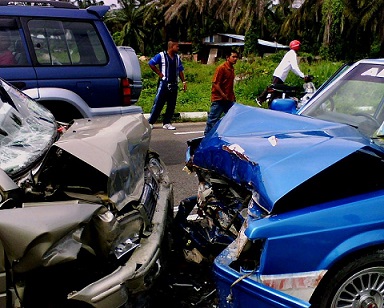Brain
Recovering from the Long-Term Effects of Automobile Accidents
If you’ve ever been in a serious automobile accident, you know that recovery can be challenging. From physical hardships to mounting medical bills, getting your life back in order after a car wreck can take a lot of hard work and sacrifice. And, if you sustained injuries as a result of someone else’s negligence, the process can be that much more difficult. Take drunk driving accidents, for example. According to the Law Offices of Michael Pines, APC, a San Diego-based firm specializing in personal injury lawsuits, alcohol-related crashes lead to some of the most severe types of trauma, including paralysis and injuries to the brain and spinal cord.
Indeed, the road to recovery isn’t always easy. And, what’s more, some accident-related effects are long-lasting, and can affect virtually every aspect of life. Effects like the ones listed below are just a few of the long-term effects of automobile accidents.
The Psychological and Emotional Effects
For individuals who have suffered injuries due to an accident, long-term psychological issues like anxiety, depression and post-traumatic stress disorder are common. And though undetectable to the naked eye, these conditions can have a significant impact on quality of life, and typically produce symptoms like the following:
- Nervousness or anxiousness, especially in regards to travel or automobiles.
- Insomnia, nightmares or other sleep disturbances.
- Withdrawal from family or friends.
- Poor performance at work or school.
- Problems within relationships, both personal and professional.
- Anger, aggression or irritability.
- Substance abuse, which often occurs as a means of self-medicating the symptoms of emotional or physical trauma.
While the cause of these symptoms can vary, they typically stem from feelings of helplessness or a loss of control, as well as fears concerning death or injury. Further, if the accident in question was fatal, survivors of the crash often experience intense feelings of guilt and remorse, which can last for an indefinite amount of time.
If you survived an automobile accident, and are experiencing the symptoms of depression, anxiety or post-traumatic stress disorder, seeking treatment is crucial to your health and quality of life. A number of methods can be used in the treatment of these conditions, including psychotherapy, medication and group therapy. These treatments are designed to help victims of accidents explore their symptoms, as well as develop coping skills in the interest of mental and emotional health.
The Physical Effects
Depending on the level of injuries sustained in a crash, the physical effects can be mild or severe. For example, some individuals may have to relearn walking and other basic skills, while others suffer from arthritis as a result of injuries. What’s more, the physical effects of an impact may not even be immediately evident. It’s not uncommon for crash victims to only suffer mild aches and pains, and, weeks or months or even years down the road, realize they were seriously injured. For this reason, it’s important to seek medical attention after an accident, no matter how insignificant one’s injuries may seem.
The Long-Term Financial Effects
In addition to the physical and mental effects of accidents, many victims experience long-term financial difficulties, as well. These problems stem from extensive medical costs, lost wages from time off, and other factors, and can sometimes result in severe financial troubles. In fact, according to the National Highway Traffic Safety Administration, automobile accidents can cost citizens a total of more than 800 billion dollars each year. For the average accident victim, this can mean financial ruin. Many of these individuals suffer financially for years, or even decades, following an accident, while others never recover from the economic impact.
If you have sustained injuries due to the fault of another driver, you may be entitled to financial compensation for your pain and suffering, lost wages, and medical bills. And while recovery may be difficult, it is possible. With the proper treatment, as well as help receiving the compensation you may be entitled to, you can recover from both the immediate and long-term effects of these types of accidents.
About the Author
Sara Stringer is freelance writer who enjoys writing about natural health alternatives. In her spare time, she enjoys maintaining an active lifestyle through swimming and practicing yoga.








